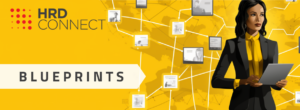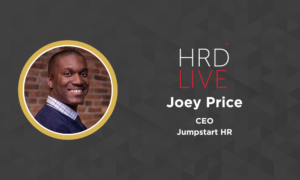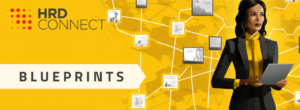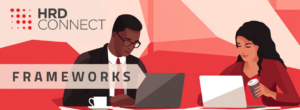Why trust must be a priority in the post-COVID world
- 5 Min Read
With so many unknowns, HRD Thought Leader Terence Mauri argues that it’s time to flip the switch, turn on the lights and ask the question – are you ready to prioritise trust alongside profitability and growth?
- Author: Terence Mauri
- Date published: Oct 2, 2020
- Categories

If I were to offer one piece of advice for HR and business leaders and their organizations, it would be this: make trust a priority and scale it to win customers on the outside and your people on the inside.
In the not too distant past, trust was considered a ‘soft’ corporate issue. Its connection to a company’s value was always there, but unclear. But not anymore. I define trust as a confident relationship in the unknown. It’s at the heart of every action, relationship and transaction, and should be an organization’s North Star for making all decisions from products and services to ethics and employee engagement.
Trust has taken center stage for HR and business leaders. According to McKinsey, 10 out of 15 industry sectors have reported a decline in trust over the last three years. You could attribute this, for instance, to the VW diesel emission scandal in 2015, or the once high-flying payment processor Wirecard crashing into insolvency this summer after admitting that €1.9bn in cash was missing, and that large parts of the business had been misrepresented.
George Orwell would have relished these times. Fake news, false facts, meme warfare, data breaches, tainted food and digital skulduggery. And to put this into monetary terms, a $30bn retail company will, in theory, lose $4bn in future revenue due to a loss of trust.
But can HR and leaders rebuild years of eroded trust? According to Edelman’s Annual Trust Barometer, 58% of people do not trust organizations to do the right thing, and 1/3 employees believe their job will not exist in a few years due to AI and automation. With so many unknowns, how can companies, individuals and society as a whole win?
Now is not the time to adopt a ‘wait and see’ strategy. As agents of change, HR and business leaders need a more expansive view about their mandate and should make trust a priority across competence and reliability (how you do things) and integrity and empathy (why you do things).
Here are three ways for HR and business leaders to move from control to trust.
1. From #Me to #We
Why is it that only 5% of nations are led by women and less than 3% of CEOs on the FTSE 100 Index are women? It’s impossible to harness trust if women are ignored as potential future leaders in organizations. To thrive, every organization must prioritize three things:
- Differences
- Divergent thinking
- Diversity
What’s more, the pandemic has highlighted that the current leadership model is broken, and has provided an opportunity to reset in three ways:
- Less micro- and more macro-managers
- More ethical leaders such as Jacinda Ahern and Angela Merkel
- Winning through empathy
Organizations that are the most trusted capture the most value when difference, divergent thinking and diversity is not just a set of beliefs, but is recognized and celebrated. It’s clear to me that people want values and value at work, and that this starts by moving from a ‘me’ to a ‘we’ mindset.
2. Win with trust
The global pandemic has turned our world upside down and accelerated disruption, from the blurring of industry lines and economic and geopolitical uncertainty, to disruptive technologies and the shrinking of company and product lifespans. As we transition to a new normal, there is fear and excitement. In the short term, from the unknown business fall out of a pandemic and, in the medium term, from the continued impact and opportunities of AI and automation. Hack Future Lab’s research shows that 83% of executives see trust playing a far greater role in sustaining a thriving workforce in a post-COVID world.
As HR and business leaders prepare to return employees to the workplace, they must ask the question: ‘How do we cultivate a high-trust and energized workforce willing to own the transformation journey, and be resilient enough to handle the challenges brought by a global pandemic?’ Organizations such as games developer Ubisoft and social media platform Twitter report that high-trust employees are twice as likely to say their organization is transparent about which jobs will change, and rank uncertainty last in reasons for feeling burnt out.
Trusted employees are twice as likely as distrusted employees to be excited about the prospect of reskilling and three times more likely to be satisfied with the company, with no plans to leave.
3. Don’t go it alone: co-create for trust
At this time of unrelenting change, companies may find themselves alternating between four distinct phases depending on the course of the pandemic:
1. Recover revenue
2. Rebuild operations
3. Rethink the organization
4. Move from ‘doing digital’ to ‘being digital’.
My research shows that the best business and HR leaders place trust at the heart of their decisions.
Some of the most trusted brands such as Netflix, Amazon and Google listen and use data and insights to understand their employees, colleagues and customers’ pain points. They take action to improve individuals’ futures while enhancing their present-day experience. Hack Future Lab’s research shows that organizations that lead with trust are more energizing to work for and more resilient in the face of adversity. Now, it’s the people delivering the experience who are driving the advantage — and the differentiator for them, too, is trust.
Who do you trust?
Without trust, relationships break down, organizations stop working, and societies fail. In an age with record levels of distrust brought on by social tension, economic nationalism and technological revolution, it’s time to consider how to bake trust into the DNA, strategy and day-to-day operations of your business and measure trust across the whole stakeholder mix from employees, to customers, suppliers, investors, analysts and the media.









